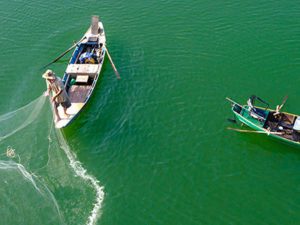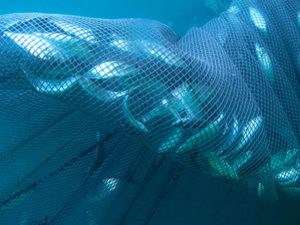Happy World Ocean Day! The United Nations is marking this day with the theme of, “The Ocean: Life and Livelihoods.” On this occasion, Our Shared Seas asked a number of experts to share their perspectives on the critical role that small-scale fisheries play for the lives and livelihoods of people and the health of the ocean—and what needs to be done to elevate and promote the role and importance of small-scale fisheries at the global level.
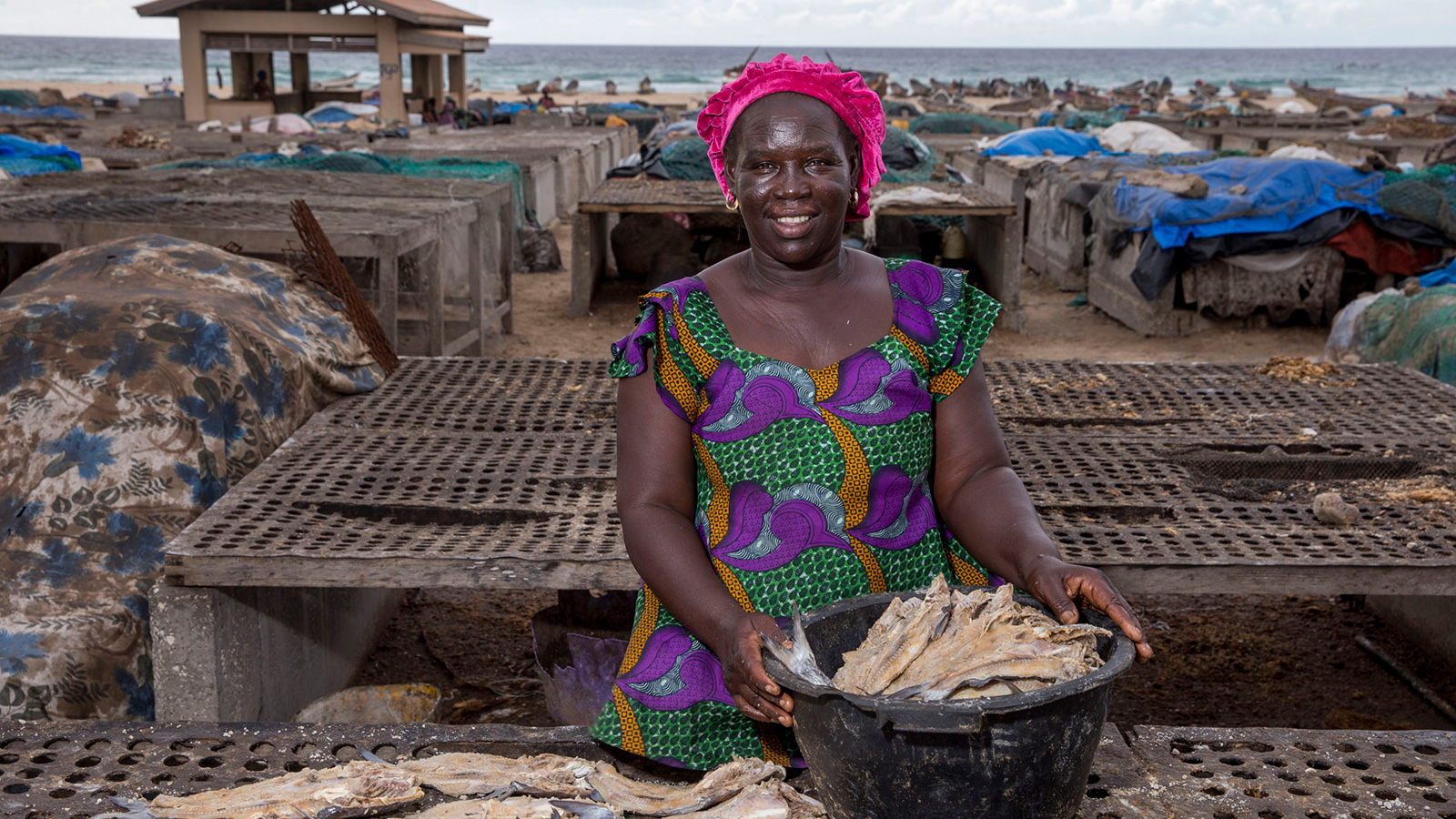
Local fish market in Senegal. Photo: Jonathan Torgovnik/Getty Images/Images of Empowerment
Throughout the world, small-scale fisheries are critical to both livelihoods and food security. Yet, they are often overlooked by policymakers and fishery managers. Of all those engaged in fishing and fish farming, most are in developing countries, and the majority are small-scale, artisanal fishers and aquaculture workers. In developing countries, small-scale fisheries provide over half of the fish catch—of which up to 95 percent is consumed locally, in rural settings where poverty rates and food security needs are high.
“Small-scale fisheries help improve food security and nutrition, alleviate poverty, and conserve the environment in countries around the world. Unfortunately, these fisheries and the communities that depend upon them often do not get the support needed from decisionmakers, perhaps at least in part because there is little data to show their important contributions to sustainable development. The old adage that ‘what isn’t counted doesn’t count’ seems to apply to small-scale fisheries in many places. We need to gather this data to further develop our understanding of these small-scale fisheries to ensure policy and action are informed by solid evidence.”
—John Virdin, Director, Ocean and Coastal Policy Program, Nicholas Institute for Environmental Policy Solutions Sustainability Science, Duke University
“Those closest to problems—such as overfishing—are also closest to the solutions. Women are intimately involved in small-scale fisheries around the world. Yet, historically their voices have been absent from conservation discussions about how to make these fisheries more sustainable. Bringing women into decision-making roles around their fisheries is an important way to find solutions so nature and people can thrive together.”
—Heather D’Agnes, Senior Program Officer, Environment Program, Walton Family Foundation
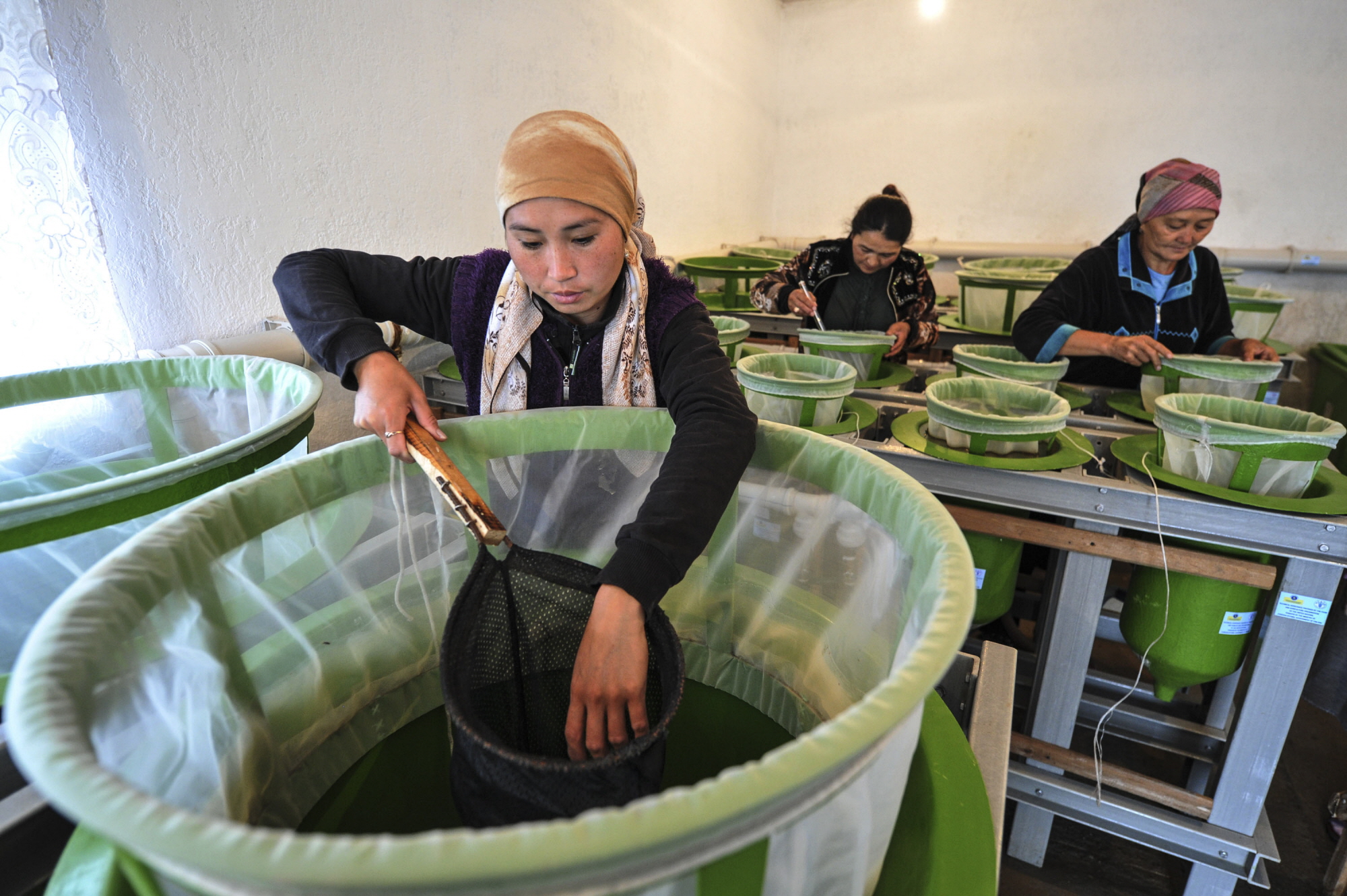
A fish production center in Kyrgyzstan. Photo: FAO
“All over the world, coastal communities are connected to their local fishery resources for food, economic viability, and overall quality of life. Unfortunately, these small-scale fishers, fish workers, and their communities are frequently excluded from making decisions about how to manage these resources. Women and Indigenous groups are the most underrepresented in this decision-making. These fisherfolk have a rightful place at the table to make decisions about the marine resources that they rely on for their lives and livelihoods. The local knowledge and expertise of these fishers, fish workers, and their communities can help reduce the risk of unsustainable utilization of fisheries resources as well.
As we head up towards the International Year of Artisanal Fisheries and Aquaculture (IYAFA) 2022, it’s time to scale up the implementation of the Voluntary Guidelines for Securing Sustainable Small-Scale Fisheries in the Context of Food Security and Poverty Eradication, the first internationally agreed-upon instrument dedicated entirely to the small-scale fisheries sector.”
—Editrudith Lukanga, Co-President, World Forum of Fish Harvesters and Fish Workers (WFF); Secretary General, African Women Fish Processors and Traders Network (AWFISHNET); Convener, Tanzania Women Fish Workers Association (TAWFA); Executive Director, Environmental Management and Economic Development Organization (EMEDO); Vice Chairperson of the Independent Steering Committee of International Year of Artisanal Fisheries and Aquaculture (IYAFA)
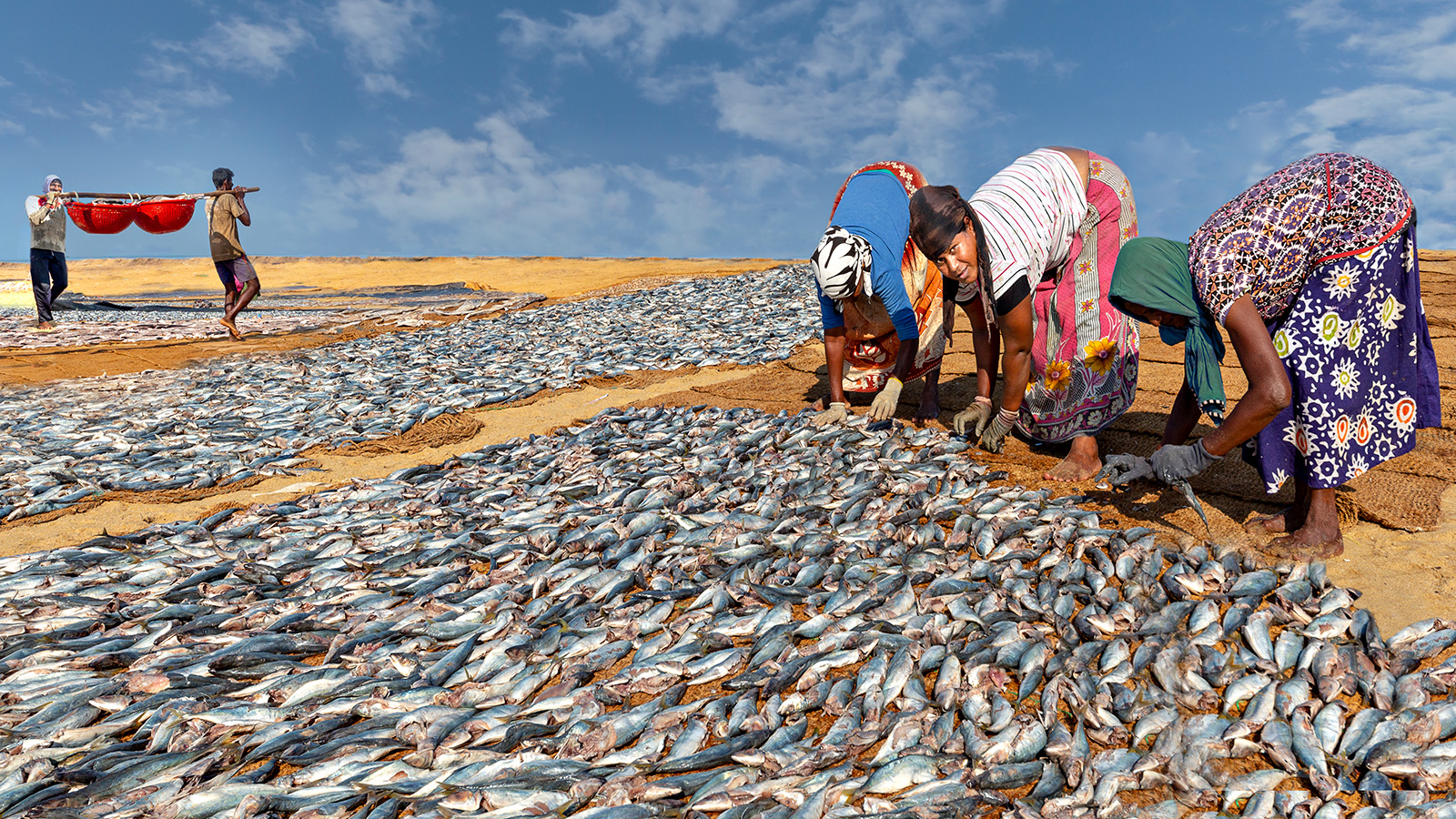
Drying fish in Negombo, Sri Lanka. Photo: Ozbalci/iStock
“The term ‘small-scale fishery’ often evokes a mental image of fishers, usually men, operating boats individually or in small crews, using low-tech gear and labor-intensive methods to catch fish. This representation is the dominant imagery, yet this one-dimensional vision fails to consider the gendered and dynamic nature and widespread activities associated with these small-scale fisheries, which in turn limits their potential. It is critical that researchers and policymakers consider the wider range of possibilities hidden beneath the surface of the current defining elements of these fisheries.”
—Xavier Basurto, Associate Professor of Sustainability Science, Nicholas School of the Environment, Duke University
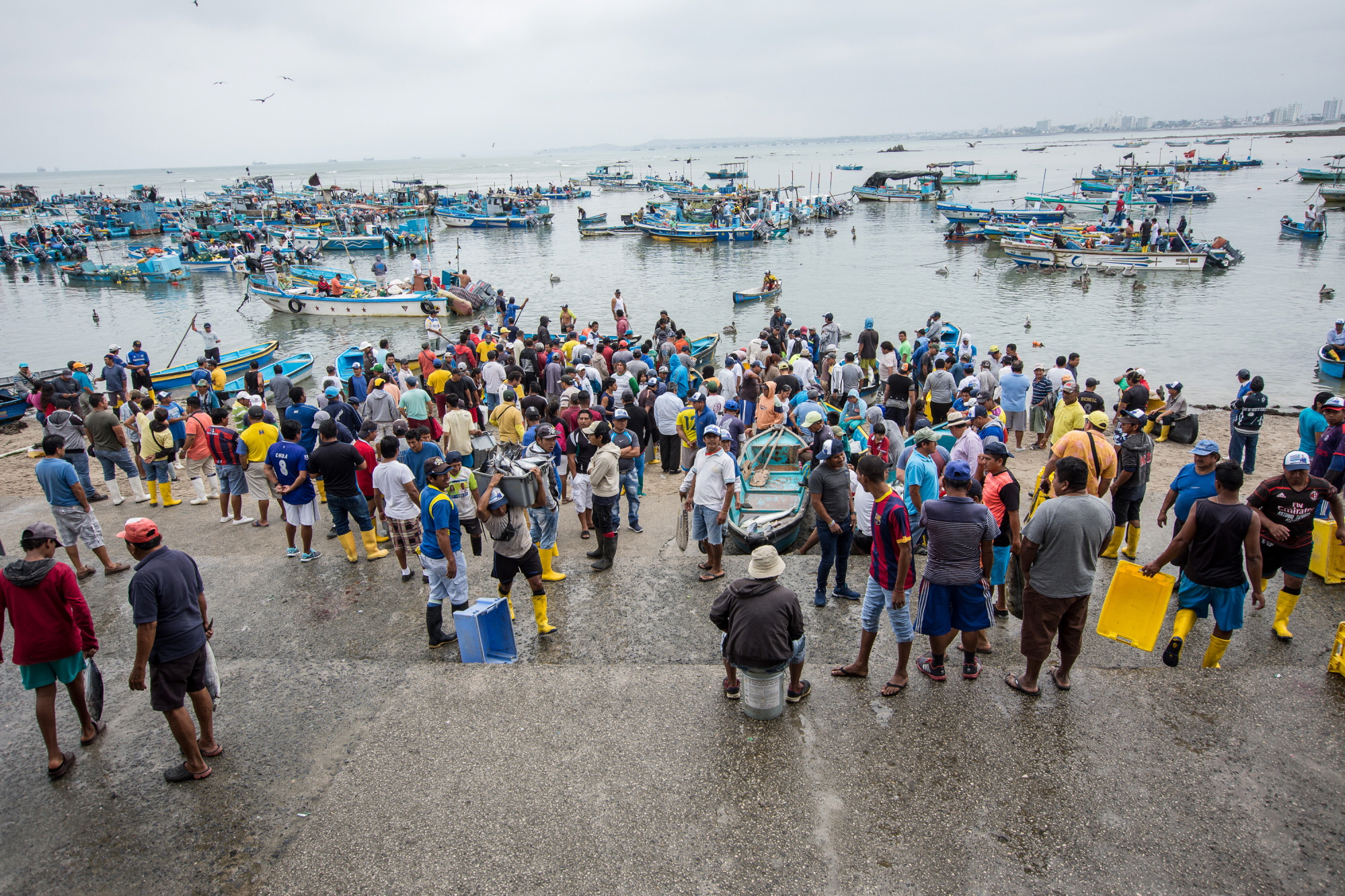
Artisanal Fishery Cooperative of Santa Rosa de Salinas, Ecuador. Photo: FAO
Upcoming Opportunities to Promote the Importance of Small-Scale Fisheries
United Nations Food Systems Pre-Summit 2021
July 26-28, 2021 in Rome (hybrid in-person and virtual)
The Pre-Summit of the UN Food Systems Summit will set the stage for the full summit by bringing together youth, farmers, indigenous peoples, civil society, researchers, private sector, policy leaders, and ministers of agriculture, environment, health, nutrition, and finance to foster diverse engagement in uncovering the best ways to leverage the power of food systems to deliver progress on all 17 Sustainable Development Goals (SDGs).
Illuminating Hidden Harvests, report forthcoming in late 2021
Illuminating Hidden Harvests, a study led by FAO, Duke University, and WorldFish, will assess the social, environmental, economic, and governance contributions of small-scale fisheries globally. More than 300 experts from over 50 countries contributed to the report, which will be released in late 2021.
International Year of Artisanal Fisheries and Aquaculture 2022
The United Nations has declared 2022 the International Year of Artisanal Fisheries and Aquaculture. IYAFA 2022 is an important recognition of the millions of small-scale fishers, fish farmers, and fish workers who provide healthy and nutritious food to billions of people and contribute to achieving Zero Hunger. In celebrating IYAFA 2022, the UN hopes to focus world attention on the role that small-scale fishers, fish farmers, and fish workers play in food security and nutrition, poverty eradication, and sustainable natural resource use—and, in doing so, increase global understanding and action to support them.

